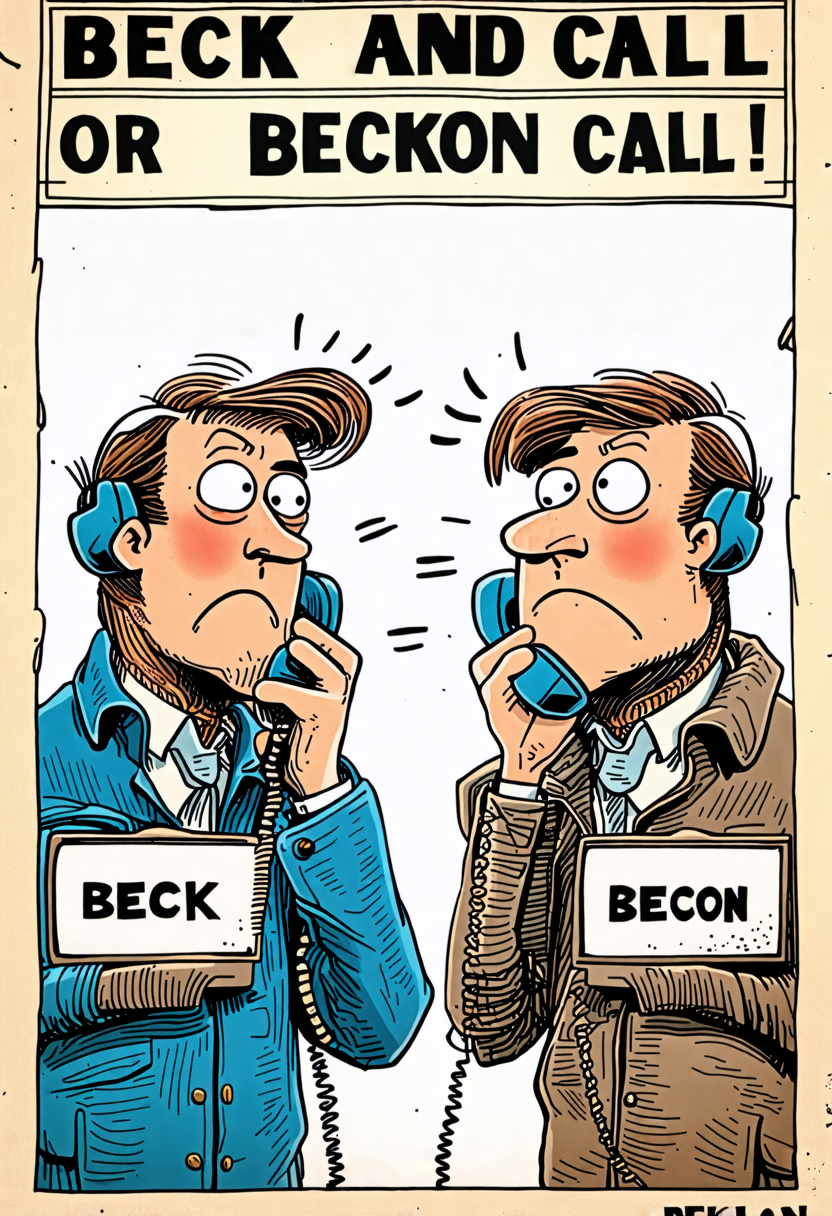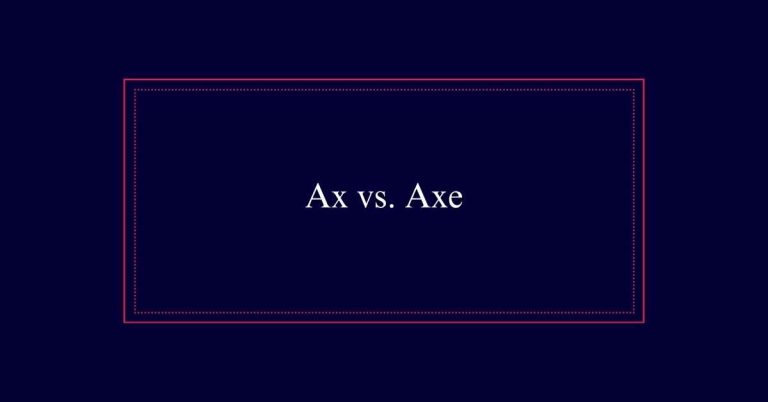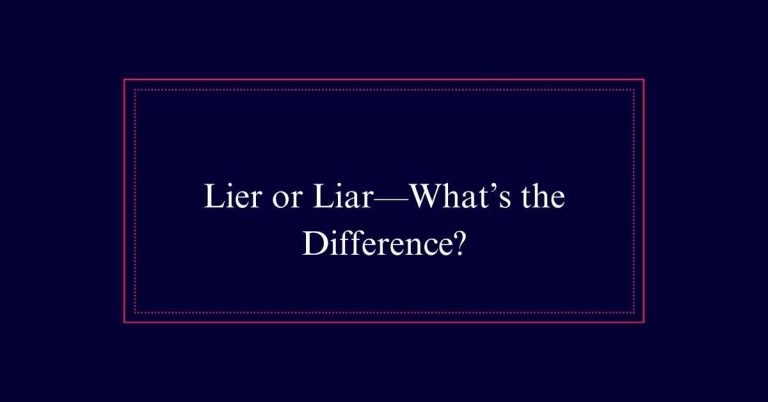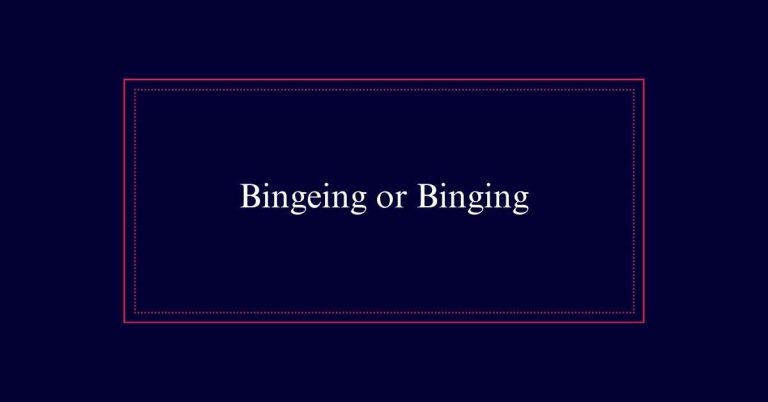“Beck and Call” or “Beckon Call”?
The correct phrase is ‘beck and call,’ not ‘beckon call.’ ‘Beck and call’ means being ready to respond immediately to someone’s commands. ‘Beck’ comes from ‘beckon,’ meaning to signal or summon, while ‘call’ signifies a verbal request. Many people mistakenly use ‘beckon call’ due to the similarity in sound. Understanding this error helps improve communication clarity. The term ‘beck and call’ suggests constant readiness to serve, often used for personal assistants or technology services.
Correct Phrase: ‘Beck and Call’
The correct phrase is ‘beck and call. This phrase means being ready to respond immediately to someone’s commands or requests.
The word ‘beck’ is a shortened form of ‘beckon’, which means to signal or summon someone. ‘Call’ is a common word, indicating a verbal summons. Together, ‘beck and call’ signify a state of constant readiness to serve or assist.
This phrase is often used to describe situations where someone is always available to meet the needs of another, such as a personal assistant to a celebrity. Understanding the correct usage is essential for clear communication and avoids the common mistake of using ‘beckon call’, which is incorrect.
Common Misunderstanding: ‘Beckon Call’
Often mistaken for the correct phrase, ‘beckon call’ is an example of an eggcorn. An eggcorn occurs when a word or phrase is mistakenly replaced with a similar-sounding one that makes logical sense.
People often think that ‘beckon call’ is correct because ‘beckon’ means to signal someone, which seems fitting in context. However, the correct phrase is ‘beck and call.’ The misunderstanding likely arises from the similarity in sound and the logical connection people make between ‘beckon’ and ‘call.’
Despite this, ‘beckon call’ is incorrect and should not be used. Understanding this common error helps ensure proper usage and clearer communication.
Meaning of ‘Beck and Call’
Being at someone’s ‘beck and call’ means you are always ready to respond to their commands promptly. This phrase signifies a state of constant readiness to attend to another’s wishes. It reflects a high level of availability and willingness to serve. The phrase is often used to describe personal assistants, employees, or even technological devices designed to respond instantly.
| Example | Context |
|---|---|
| Celebrities’ glam teams | Ready to assist with makeup and styling at any moment |
| Uber service | Available for rides at any time with a monthly subscription |
| Amazon’s Alexa | Responds to verbal commands for various tasks |
| Personal Assistant | Always prepared to handle tasks and errands |
| Luxury concierge | Provides immediate services for high-end clientele |
Origin of ‘Beck’
‘Beck’ originates from the Old English word ‘beccan,’ which means to signal or summon. This historical context provides insight into its current usage in the phrase ‘beck and call.’
The term ‘beck’ was eventually shortened from ‘beckon,’ a verb still in use today that signifies making a gesture to instruct or command someone to approach or follow. Over time, ‘beck’ retained this meaning and continued to be used in contexts where one person is ready to respond immediately to another’s demands.
Understanding the origin of ‘beck’ helps clarify why the phrase ‘beck and call’ implies a state of constant readiness to serve or assist, reinforcing the importance of the correct phrase over its common misinterpretation.
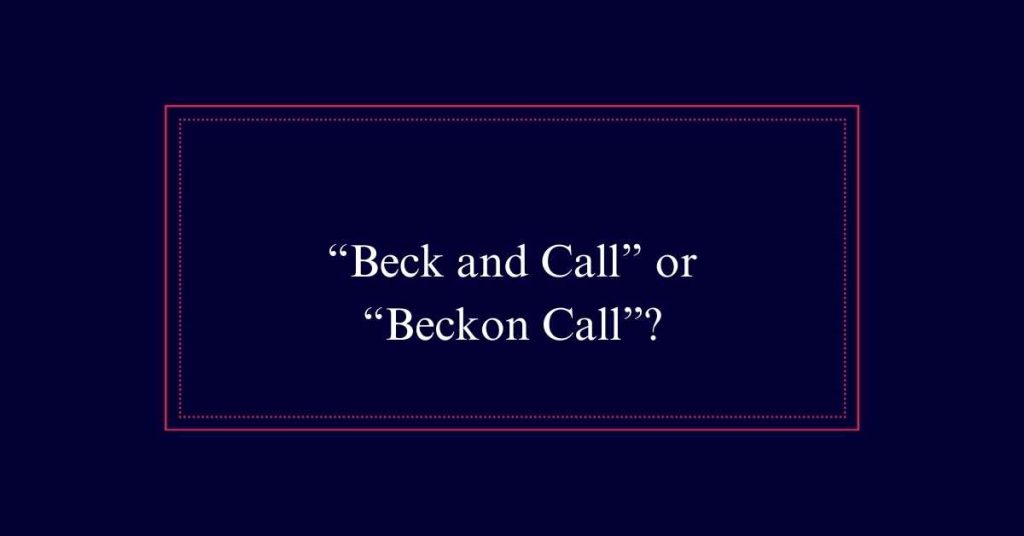
Significance of ‘Call’
The word ‘call’ in the phrase ‘beck and call’ signifies a verbal command or request that one is expected to respond to without hesitation. In this particular situation, ‘call’ emphasizes immediacy and the expectation of a prompt reaction. It represents the verbal aspect of the command, making it clear that the person must be attentive and ready to act.
The term ‘call’ is commonly used in daily life to signal a need for attention or action. In the phrase ‘beck and call,’ it complements ‘beck,’ reinforcing the idea of being constantly available. This duality highlights the extensive nature of the readiness expected, encompassing both non-verbal signals and explicit verbal instructions.
Examples in Modern Life
In today’s world, many people have personal assistants at their beck and call. This phrase means they are always ready to respond to any request or command. Modern technology has made this easier and more widespread.
- Smart Devices: Devices like Amazon Alexa allow users to control their environment with voice commands.
- Ride-Sharing Services: Apps like Uber provide transportation at the touch of a button, making it seem like a car is always available.
- Personal Assistants: Many professionals hire assistants to manage schedules, handle correspondence, and perform various tasks quickly.
Celebrities at Beck and Call
Therefore, celebrities often have teams of professionals at their beck and call to guarantee they look and feel their best. This includes personal assistants, stylists, makeup artists, and trainers who cater to their needs around the clock.
These professionals are expected to respond immediately to any request, ensuring that every aspect of the celebrity’s life runs smoothly. The phrase ‘beck and call’ perfectly encapsulates this dynamic, highlighting the immediate and attentive service provided.
Whether it’s preparing for a red carpet event or managing day-to-day activities, these teams are essential. Their dedication allows celebrities to maintain their public image and meet the demands of their careers without delay. This high level of service and availability aptly describes the role of these professionals.
Luxurious Lifestyles
Many individuals enjoy luxurious lifestyles that guarantee them to have services and conveniences at their beck and call. This level of comfort is often associated with high-end amenities and personalized service. People in such lifestyles often have:
- Personal Assistants: Ready to handle tasks from scheduling to shopping.
- Private Transportation: Chauffeurs and luxury vehicles available on demand.
- Exclusive Access: Memberships to elite clubs and events.
These services secure that their needs are promptly met, allowing them to focus on personal and professional pursuits without distraction.
The phrase ‘at their beck and call’ aptly describes this constant readiness to serve. It signifies a life where every whim is catered to, reinforcing the essence of luxury and convenience.
Technology at Your Command
With advancements in technology, modern devices are now at our beck and call, streamlining daily tasks and enhancing convenience. Voice assistants like Amazon’s Alexa and Google Home allow users to control smart home devices, set reminders, and access information instantly.
Smartphones and tablets keep us connected, providing immediate access to emails, social media, and real-time updates. Wearable technology, such as smartwatches, monitors health metrics and delivers notifications on the go.
These innovations exemplify how technology responds to our commands effortlessly, making everyday life more manageable. The phrase ‘beck and call’ perfectly encapsulates this relationship, highlighting the prompt and efficient service that technology provides at our fingertips.
This integration of technology in daily life epitomizes modern convenience.
Commonly Misspelled Phrases
One of the most frequent language errors is the incorrect spelling of common phrases. Such mistakes often lead to confusion and miscommunication. These errors, known as eggcorns, occur when a phrase is phonetically similar to another but incorrectly used.
For example, ‘beckon call’ is an eggcorn of the correct phrase ‘beck and call’.
Here are some common misspelled phrases:
- ‘For all intents and purposes’ is often misspelled as ‘for all intensive purposes.’
- ‘Deep-seated’ is frequently written as ‘deep-seeded.’
- ‘Nip it in the bud’ is mistakenly spelled as ‘nip it in the butt.’
Frequently Asked Questions
What Are Other Common Eggcorns in English?
Other common eggcorns in English include “for all intensive purposes” instead of “for all intents and purposes,” “nip it in the butt” instead of “nip it in the bud,” and “escape goat” instead of “scapegoat.”
What Are Historical Uses of the Term ‘Beck’?
Historically, ‘beck’ was used as a shortened form of ‘beckon,’ meaning to signal or summon someone. It appeared in literature and daily speech, often indicating readiness to serve or respond to commands immediately.
